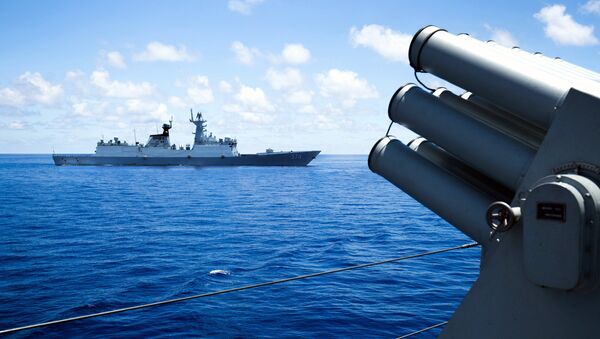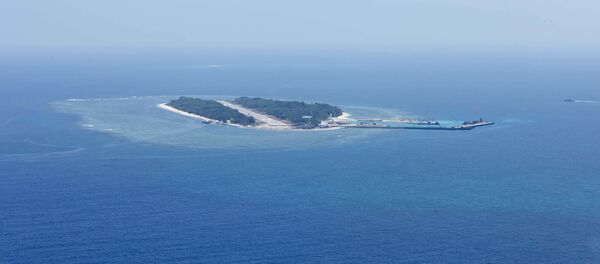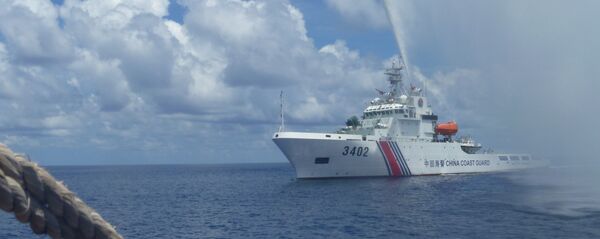Ever since the Philippines filed the South China Sea arbitration, the US, Australia, Japan and some other countries accused China of violating international law.
According to China's People's Daily newspaper, “This tough talk only exposed their dirty strategic motives. Such tricks are not able to cover the legitimacy of China’s stances, nor alter the strong support to China from those international forces standing for justice.”
The publication further mentioned that the above countries adopted a completely different attitude when they were involved in issues related with the international rule of law. Hence, such sharp contrast speaks for their hypocrisy and unpredictability.
“They supported international judicial rules that they can benefit from, but trampled on that not in favor of them ,” the newspaper wrote.
The publication mentioned that the US has never been accused under UNCLOS because Washington never approved the law, an article on Foreign Affairs wrote in an ironic tone.
“Back in the 1980s, Nicaragua charged the US with taking military and paramilitary actions in and against Nicaragua and violating the sovereignty of Nicaragua in the International Court of Justice (ICJ).”
The ICJ ruled in favor of Nicaragua and gave reparations to Nicaragua. But the US, with a tough attitude, declined participation in the events and overruled the verdict delivered by the ICJ.
The US later obstructed enforcement of the judgment by the UN Security Council and banned Nicaragua from obtaining any definite compensation.
“The same goes for Australia, which always wants to follow the ‘international police’ posture. When concluding maritime rights treaties with Timor-Leste, the Australian government unilaterally rejected such articles concerning maritime delimitation and third-party dispute settlement procedure. Without any other options, Timor-Leste had to file for arbitration to overrule the validity of the treaty,” People’s Daily reported.
Another country which is no stranger to violating international law is Japan. Its whale-hunt in Antarctica was ruled as breaching the International Convention for the Regulation of Whaling by the ICJ, which ordered Japan to stop distributing whaling permits in the South Pole.
“Though talking a good talk about respecting the verdict, the Japanese government did not match its actions with words. No effective measures were taken to curb domestic whaling.”
Contrary to, Western countries, China has always resolutely maintained the authority of international law.
At the commemoration marking the 60th anniversary of the "Five Principles of Peaceful Co-existence," Chinese President Xi Jinping pointed out that all countries should advance the rule of law in international relations together.
“We should urge all parties to abide by international law and well-recognized basic principles governing international relations and use widely applicable rules to tell right from wrong and pursue peace and development,” People’s Daily reported Xi Jinping as saying.
According to the publication, unlike Western countries who selectively apply international law, China always applies “the spirit of the international rule of law in its diplomatic practice.” So far, China has established over 23,000 bilateral agreements and joined more than 400 multilateral treaties.
In January 2013, the Philippines filed a suit against China, claiming that Beijing had violated the UN Convention on the Law of the Sea by its actions in the South China Sea. China refused to participate in the case.
Last week, the Hague-based Permanent Court of Arbitration ruled that China has no legal basis to claim historic rights to South China Sea resources and violated the sovereign rights of the Philippines in the country’s exclusive economic zone.




